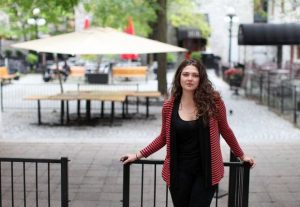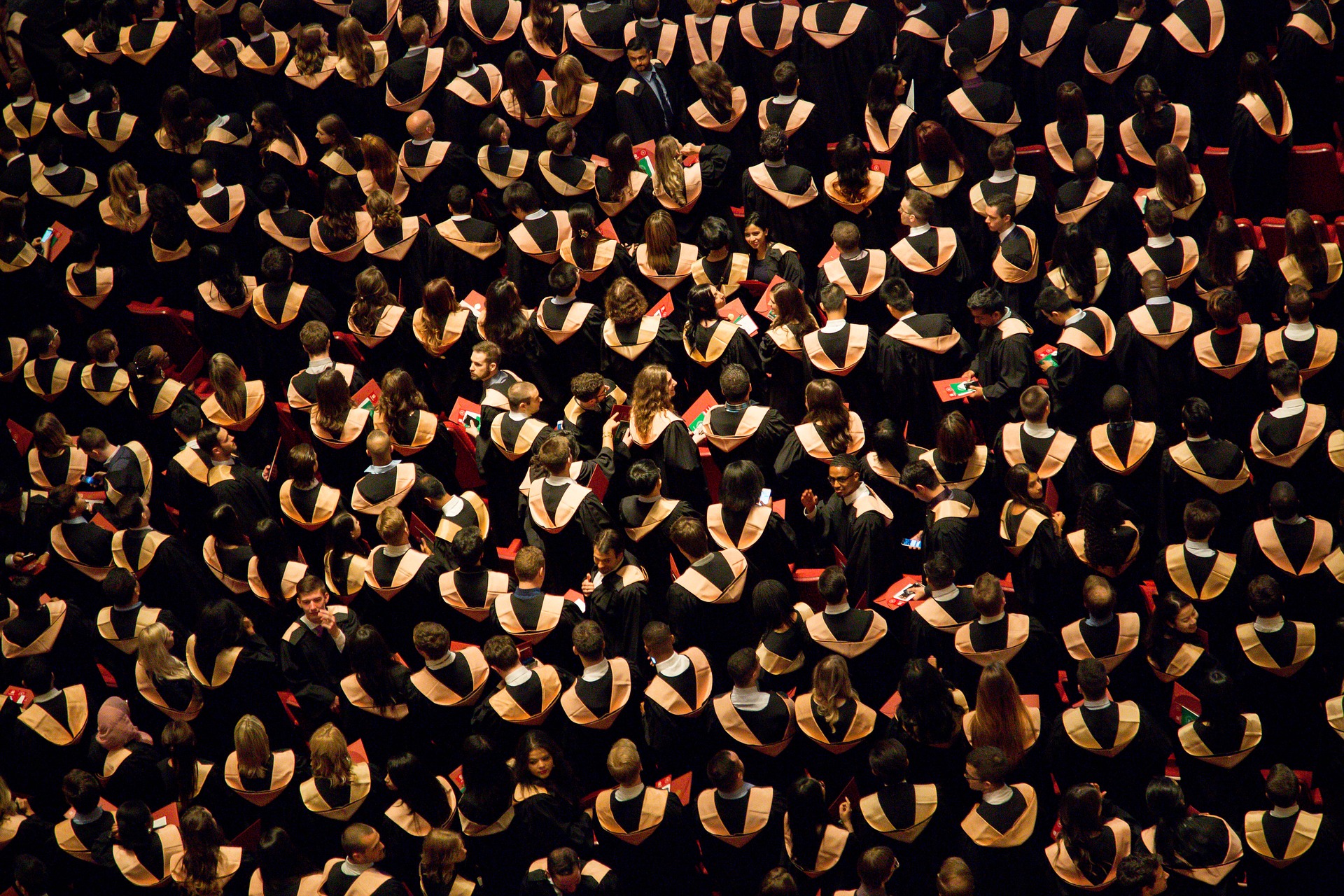When Clair Parker graduated from high school, her parents urged her to go to college and learn a trade. However, being a strong student and ambitious, college seemed like selling herself short. “Going to university was the automatic thing to do,” she says. “Prestige is the appropriate word to describe how university was presented to me in high school.”
Fascinated by economics and international relations, Ms. Parker signed up for political science at Carleton University in Ottawa. Although she wasn’t sure where she’d end up, she believed that getting a university education would lead her to a fulfilling career.
But when she graduated in January, 2014, she felt completely unprepared for a job related to her field. “When I came out of university, I wondered, ‘Why did I just do that?'” she laments. Ms. Parker is now patching together a living working at a restaurant and an artisan deli. She plans to enroll in a public relations program at Humber College in January, 2015, in the hope of landing a communications role in the food industry. “I just hope I come out actually employable,” she says.
Ms. Parker’s story is all too familiar. Too many young people flounder around the margins of their chosen field, bouncing from unpaid internship to short term contract to coffee shop job. Youth unemployment continues to hover stubbornly around 13 per cent, only 2 per cent lower than its peak during the recession and double the national average. And the unemployment rate doesn’t tell the whole story. According to a recent report published by the Canadian Labour Congress (CLC), the rate of those underemployed − people stuck in part-time or low income jobs, unable to secure full-time work related to their field − is double the unemployment rate.
It seems like a bleak picture. And yet, if some politicians and employers are to be believed, Canada is facing a severe shortage of skilled labour. Last year, a Canadian Chamber of Commerce report estimated that skilled job vacancies would hit 1.5 million by 2016. Those most in demand are said to be in the STEM fields: scientists, technologists, engineers and mathematicians. In multiple surveys, employers complain that not only are applicants graduating from university without the needed technical knowledge, but also with a lack of soft skills such as communication, analysis and collaboration.
Stephen Harper has blamed the situation partly on “people’s choices,” meaning that students are at fault for choosing to study subjects that are not in demand. Gwyn Morgan, the long-time executive and board director of some of Canada’s largest corporations, points the finger at universities. “Many high-school graduates who manage to gain the qualifications needed to enter STEM programs are turned away when they apply to university, even with good marks, because universities won’t reallocate money to open more slots for students in those programs,” he wrote in The Globe and Mail. He cites a 2013 CIBC World Markets report that argued that universities wasted funds on producing graduates in out-of-demand fields, such as arts and humanities, while turning away thousands of qualified STEM applicants.
Regardless of who’s to blame, a gap has emerged between young people’s expectations for their future (as cultivated by social norms, parents and even some guidance counsellors) and the realities of the labour market.
“We’ve directed kids to university who would normally not have gone to university because we’ve said that it’s the path to success,” says Janet Lane, director of the Centre for Human Capital Policy at the Canada West Foundation. “It’s an expensive way to learn what you’re best at.”
So wherein lies the truth? Is a university education still the leg up that it once was? A close look at the numbers reveals a more nuanced story, in which the right sort of education is still the best route to a good job, decent income and, even better, health and happiness. But what makes an education relevant to this brave new world doesn’t fit neatly into the “skills shortage” narrative, and not all universities are delivering.
Ms. Parker wishes her high school and university had done a better job of providing accurate information about viable career paths. “The Carleton website lists jobs you can get with specific degrees and under political science, it lists ‘diplomat.’ How many people get a poli sci degree and go on to become a diplomat?”
So if young people need to readjust their expectations for their future, what should they expect? How can they reconcile the story told by those decrying Canada’s shortage of skilled workers with the grim job market their generation is experiencing? And what kind of education will equip them to succeed?



